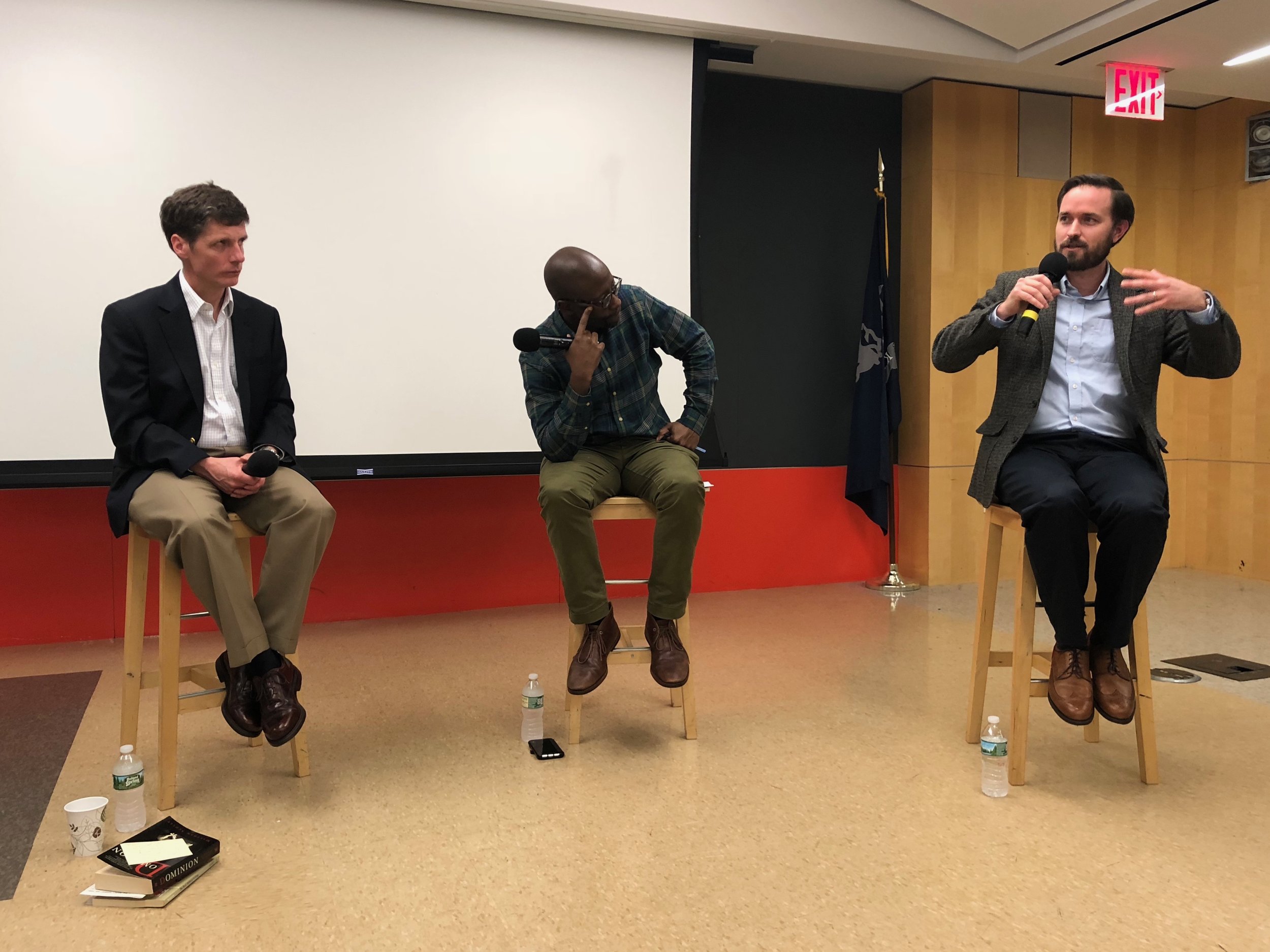Vegans, Vegetarians, Pescatarians – Which is More Christian?
An eco-friendly and sustainable meal. || Photo Credits to Unsplash.com
King’s hospitality club, Dele, recently hosted a panel to explore the questions surrounding animals and ethics, “Humane Hospitality and the Welfare of Animal Rights.” Dr. Anthony Bradley, Dr. David Tubbs, and Dr. David Talcott were invited to share their thoughts on the subject and explore how Christians should approach their diets.
Anne Carman, the previous President of Dele, raised the questions: Is there a ‘right’ or ‘wrong’ way for Christians to approach animal welfare? Can Christians eat meat? Are they allowed to have animals products at all? If they choose to, what’s the best way to go about consuming animal products? What does the Bible say about this?
Carman opened up the conversation to Bradley, Tubbs, and Talcott who dove into the conversation right away.
Dr. Tubbs, Dr. Bradley, and Dr. Talcott sharing their beliefs surrounding animal welfare. || Photo Credit to Serena Tuomi
First, the professors explained the changing nature of how consumers interact with food.
“It wasn't too long ago where communities grew their own food. At the center of all of this was the church. They would get together as a community and trade off– they ate each other’s food. That lasted all the way through the 1980’s,” Bradley said.
Tubbs mentioned that most people don't have to reflect on how their food is slaughtered, so they don't.
“We complain about a level of disconnection, but food is no longer at the center of our connection– not just on the consumption side, but on the production side as well,” Bradley said, elaborating on Tubbs point. “We use food as a means rather than a destination of being human.”
Bradley also reminds us that this way of eating is a privilege, not a right.
“Some people don’t even have the option to have this conversation. People in the lower quintile don’t have the freedom to opt out of this kind of system because the don’t have options. This is an elitist conversation. We are consumers who drive food production.”
Lauren Bannister, Sydney Watson, and Dominique LaCroix enjoying lunch and good conversation about their favorite plant-based meals. || Photo Credit to Serena Tuomi
This might lead one to wonder what correlations exist between Christians and ethics within this context.
Talcott shared that his family chooses a vegetarian diet for a majority of the time because they believe in the health benefits it provides, but not because he believes the Bible speaks against animal products.
“For Christians, scripture should be the primary foundation for ethical reflection. It has general principles that help us, which we can apply.” Talcott said. “In Genesis chapter nine, God is talking to Noah and is very explicit that animals are given for food. However, God still cares about animals– animals are valuable because of what they are.”
Talcott also brought up the end of the book of Jonah. He explained that God chose not to destroy the city of Nineveh, not only because of the souls, but also because of the cattle within the city.
Tubbs got the audience chuckling with a story of a former student he taught who introduced him to her parents as “the professor who made her a vegetarian.” He, himself, is not a vegetarian; he believes Christians can eat meat, but they do need to be conscious about their consumption.
“I eat meat, but I only eat meat that is organic, free range, or that my father has taken in the wild. The only deviation of this I take is if I am a guest in someone’s home and they are showing me hospitality. It would almost be downright rude to refuse,” Tubbs said.
The professors concur that if Christians choose to use animal products, there are limitations. Meat should be consumed in a more thoughtful, conscious way.
Sydney's fall inspired pasta dish: chickpea noodles with a coconut milk, pumpkin, and sage sauce, garnished with goat cheese and sage. || Photo Credits to Serena Tuomi
Bradley predicted that the “reducetarian” movement is going to be the next big thing in the animal welfare industry. This operation provokes participants to be very mindful regarding their animal consumption.
“The reducetarian movement is meant to get people thinking about the life cycle of food and reduce where it makes sense,” Bradley said. “We shouldn’t get caught up in labels but instead think of where food comes from.”
To conclude the panel, Tubbs challenged everyone who eats meat to reflect on it periodically. He reiterated that pondering the process can lead to further reflection which is beneficial to all.
The following afternoon, Dele’s vice president, Sydney Watson, hosted a lunch to continue the conversation about both vegetarian and vegan diets. Her guests enjoyed a fall-inspired, pumpkin pasta dish garnished with sage, paired with goat cheese.
“My favorite vegetarian meals are risottos. There are also some really great salads out there as well. I want to teach people that being a vegetarian doesn't mean you only eat salads. Broadening foods horizons means being more open-minded when it comes to food even if you aren't familiar with them.”




